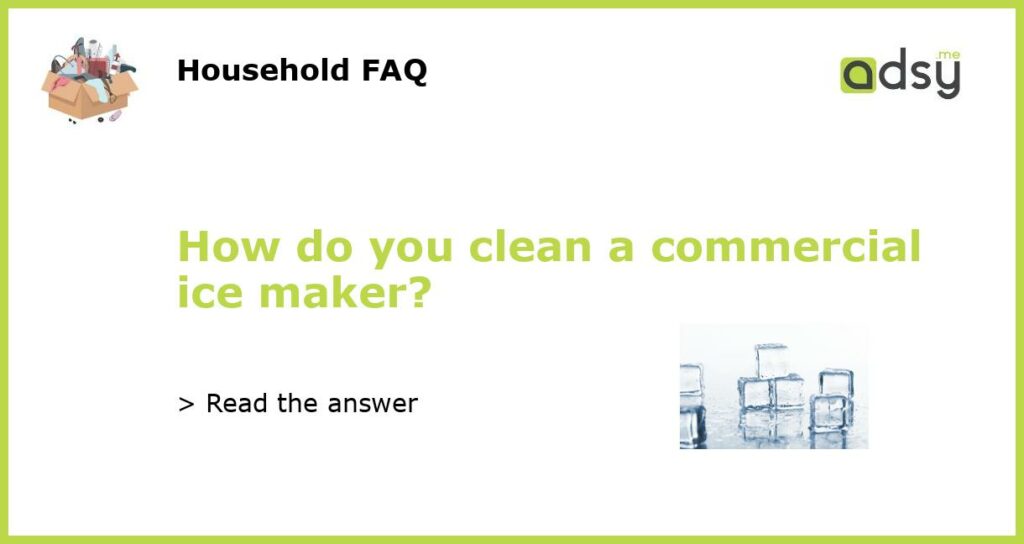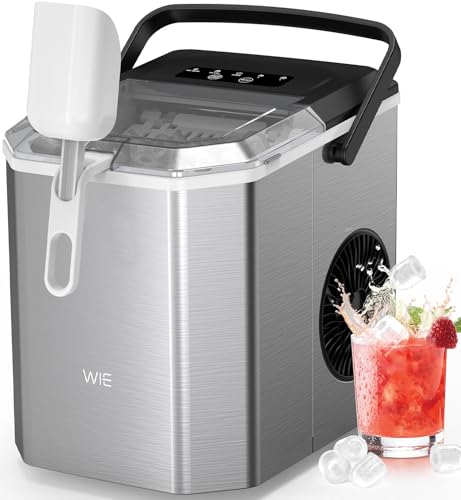Why Cleaning a Commercial Ice Maker is Essential for Food Service Industry?
Cleanliness is crucial in the food service industry because it concerns consumer health. Commercial ice makers, which are used to produce ice for beverages, need to be cleaned regularly to prevent contamination. Proper cleaning can also prevent mechanical breakdowns, extend equipment life, and improve ice maker efficiency. Not cleaning an ice maker on time can lead to expensive repairs, downtime, and potential food safety violations. The following are some tips on how to clean a commercial ice maker.
What Are the Steps to Clean a Commercial Ice Maker?
There are different types of ice makers, but most follow similar cleaning procedures. Firstly, unplug the machine before cleaning it and empty the ice bin. Wear protective gloves during the cleaning process, and put on safety glasses to protect eyesight from chemical splashes. Dissolve a commercial ice maker cleaner in warm water and mix well. Remove all removable components, such as ice scoops, water hoses, and the bin compartment, and soak them in the solution for about fifteen minutes. Using a sponge or brush, scrub the interior components of the ice maker, including the evaporator and other hard-to-reach areas, and rinse thoroughly. Ensure that no chemical residue remains inside the machine before reassembling and restarting your ice maker.
How Often Should You Clean a Commercial Ice Maker?
The Food and Drug Administration (FDA) recommends cleaning a commercial ice maker at least every six months. However, depending on the frequency of use of your ice maker and the water quality used to make ice, it may require more frequent cleaning. For example, if your ice machine operates in a humid or dusty environment, it will require more frequent cleaning. In some cases, if the ice maker produces less ice or produces cloudy or discolored ice, it may indicate that your machine needs cleaning.
What Are Some Cleaning Tips for a Commercial Ice Maker?
For optimal cleaning results, it is important to follow some essential tips, including cleaning the ice bin and scoops daily, changing water filters every six months, and avoiding using harsh chemicals such as bleach or vinegar for cleaning the machine. Regular inspection of the drain line is also crucial to prevent clogs and bacteria growth. Routinely monitoring the machine’s performance and conducting regular cleaning can help avoid bacteria growth and increase equipment longevity.
Conclusion – Why Regular Cleaning of a Commercial Ice Maker is Vital?
Regular cleaning of a commercial ice maker is crucial for maintaining high standards of hygiene in the food service industry. Failure to maintain cleanliness can not only lead to food-safety violations but also incur additional costs such as repairing expensive equipment. Cleaning a commercial ice maker can be a simple process if you follow the cleaning steps, cleaning tips, and cleaning frequency requirements we’ve discussed. Clean your ice maker regularly to ensure customer satisfaction, maintain equipment longevity, and avoid future liability.






